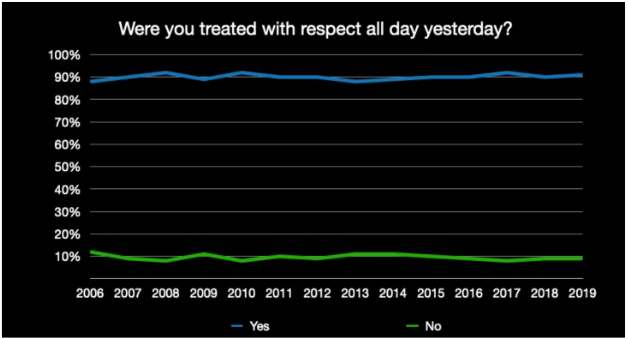Aliens have a big week. A new study on moral decline makes waves. PLF keeps winning at the Supreme Court. An ancient philosopher shares timeless wisdom. And Mortimer Adler says to listen so you can grow.
Talking Big Ideas.
“Ideas shape the course of history.”
~ John Maynard Keynes
This newsletter focuses on Big Ideas. We discuss why they matter and how we can bring them to life. Today’s piece highlights five ideas – old and new – that are worth exploring.
***
IDEA: Aliens may be dancing throughout the cosmos.
This week several high-ranking intelligence officials came forward to claim the U.S. government has possession of “non-human aircraft” as well as non-human bodies. The prominent economist Alex Tabarrok tweeted: “If this is true it’s the most important event in the history of the world.” Aliens went viral on Twitter, including a bizarre story picked up by USA Today about 10-foot tall aliens walking around a Las Vegas neighborhood.
Carl Sagan famously wrote that “extraordinary claims require extraordinary evidence” and so far we lack that. But just thinking about the possibility of life elsewhere in the universe fills me with wonder. The science writer Jaime Green, a modern Sagan, says in her excellent new book The Possibility of Life: Science, Imagination, and Our Quest for Kinship in the Cosmos (2023) if aliens exist they may be very similar to us:
We may . . . find intelligent life on another planet to be more familiar, or comprehensible, than the other intelligent life here. For all the points of connection – the interspecies relationships, the trainability, the ineffable something that humans seem to recognize in cetacean yes – whales and dolphins may be truly alien because . . . they’re nonterrestrial. If an alien evolved in an environment more like ours, even just on land instead of in water, it’s reasonable to anticipate convergence.
In the 1990s the anthropologist Donald Brown compiled a list of several hundred characteristics that people possess. There are “no known exceptions” to these “universals common to all human societies.” They include bonding through rituals, empathy, jokes, practicing to improve skills, playing music, and dancing.
I love this idea of connection – and I like to think these universals are being applied broadly throughout the cosmos.
***
IDEA: You see moral decline. It’s an illusion.
If you only have time to read one thing this week, stop reading my newsletter and dive into Adam Mastroianni’s brilliant essay, The Illusion of Moral Decline. It’s a friendly version of a study getting positive attention that he published this week with the award-winning Harvard psychologist Dan Gilbert (author of Stumbling on Happiness).
Every year people worldwide say that morality is declining. And, yet, when people are asked more specifically if they’ve been treated with respect:

The study is deep, with massive sample sizes, solid analysis, and numerous graphs to enjoy. The bottom line is that people worldwide see a decline in morality – and it is almost assuredly an illusion. Biased attention and biased memory are likely to blame:
The past is a foreign country, but we all have the vivid delusion that we’ve lived there for a long time and know everything about it. . . . it’s not fine when those strong opinions lead to demands for actual changes in the world. . . It’s like activating the sprinkler system in a building that’s not on fire.
We’ve focused here on morality because that’s an area where we think this illusion is both strong and important. But there may be many others, because lots of people are saying that lots of things are declining: democracy, culture, reason, art, our children, the future. I’m not saying all of these are illusions, but they sure sound familiar.
A related must-read essay is Steven Pinker’s A History of Violence from 2007. The truth, as hard as it is to see, is that the world is improving and we’re getting nicer every day.
***
IDEA: The government cannot take more than it’s owed.
The Pacific Legal Foundation is amazing. They keep winning important cases at the U.S. Supreme Court. On May 25 the Court handed down two victories to PLF. They won two Supreme Court cases . . . in the same day! I think it’s the first time in history that’s happened.
One of their May 25 victories was a unanimous decision written by the Chief Justice of the United States:
A taxpayer who loses her $40,000 house to the State to fulfill a $15,000 tax debt has made a far greater contribution to the public fisc than she owed. The taxpayer must render unto Caesar what is Caesar’s, but no more.
This is a big win for Americans everywhere as it helps protect property rights, which are foundational to living happy, healthy lives. Sometimes – with the help of really talented attorneys – everyday Americans can stand up to the politically powerful and win.
Christina Martin argued the case and I’m honored to say we helped her prepare.
***
IDEA: Ask first, “Is it within my control?”
Epictetus was an ancient crippled slave who became one of the most influential philosophers in history. He taught that philosophy should be an integral part of daily living rather than abstract theory. The Manual: A Philosopher’s Guide to Life begins with Epictetus’s foundational lesson about control:
We can control some things but not all things. Working within our sphere of control, we are naturally free and strong. Beyond that sphere, we are dependent and weak. If you pin your hopes on things outside your control, you are likely to suffer, stumble, and blame others.
If you wish to have peace and contentment, release your attachment to all things outside your control. This is the path to freedom and happiness.
A century after Epictetus died, the most powerful emperor in the world lived based on his teachings. French Enlightenment philosophers from Voltaire and Montesquieu to Diderot were dedicated followers.
Epictetus continues to have influence and relevance today. Much of our suffering comes from trying to change things we have no control over while neglecting to change things within our power. With proper focus you almost assuredly have the ability to become happy, healthy, loving, well-spoken, and influential.
***

IDEA: Listen to make yourself better.
The path for all progress in our universe is the same: Adjustments based on feedback. It’s how biology forms complex life. How markets create wealth. How science advances – and how humans build new technologies, skills, and ideas.
The philosopher Mortimer Adler understood this. He’s best known as the author of How to Read a Book. An instant classic when it was first published in 1940, it stayed at the top of the bestseller lists for more than a year and remains popular eight decades later. (Farnum Street has an excellent overview as part of their series on reading.)
43 years after publishing How to Read a Book, Adler wrote what he considered its sequel: How to Speak, How to Listen. Also worth having on your bookshelf, this sequel explains how everything you write and say should be battle tested and improved in the trenches:
The author who has not faced audiences, who has not learned from their questions and objections what must be done to improve his thought and what must be said to communicate it effectively, is deprived of input he can acquire in no other way.
Our ideas need to be tested and polished in the real world. How do we learn what needs clarified, simplified, expanded upon, and reworked? What have we failed to consider? How do we know if our stories connect, our analogies illuminate, our big ideas stick? What did we get wrong?
Truly listening to others – embracing their feedback and iterating – empowers us to make progress in our own thinking, writing, and speaking.
***
Big Ideas are all around us.
The more we explore them, clarify them, and bring them to life, the better chances we have of building a prosperous and awe-filled future.




